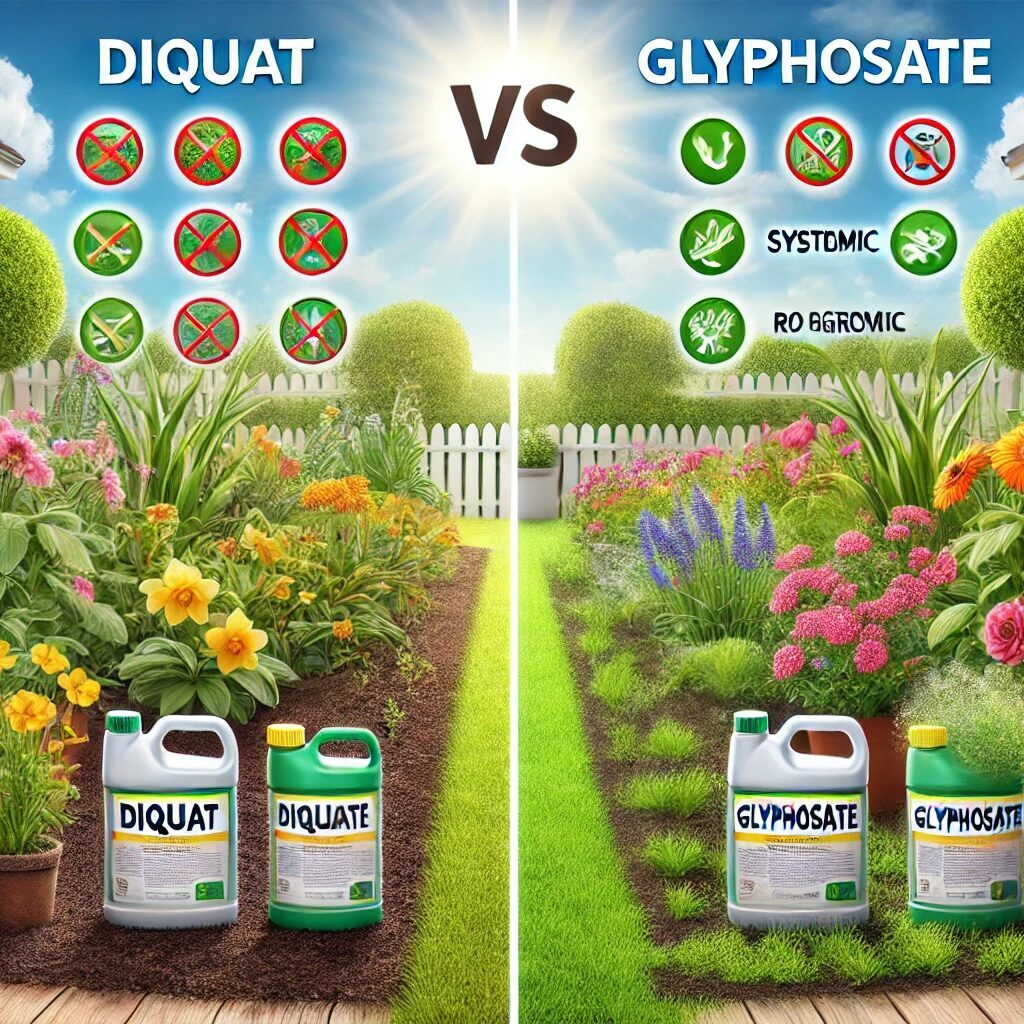
Diquat vs Glyphosate? Which weed killer controls unwanted grass fast? Both claim quick results, but which works best for your lawn?
Weeds can quickly overrun a garden, lawn, or landscape, making weed control a top priority for many homeowners. Two of the most popular herbicides are Diquat and Glyphosate, each offering distinct ways to control unwanted plants. But which one is right for you?
Diquat and glyphosate are two popular choices when it comes to controlling unwanted plants and maintaining a clean lawn. While both are effective, they work in different ways and offer distinct advantages.
This guide will walk you through the key differences and help you make an informed choice for your lawn care needs.
Diquat
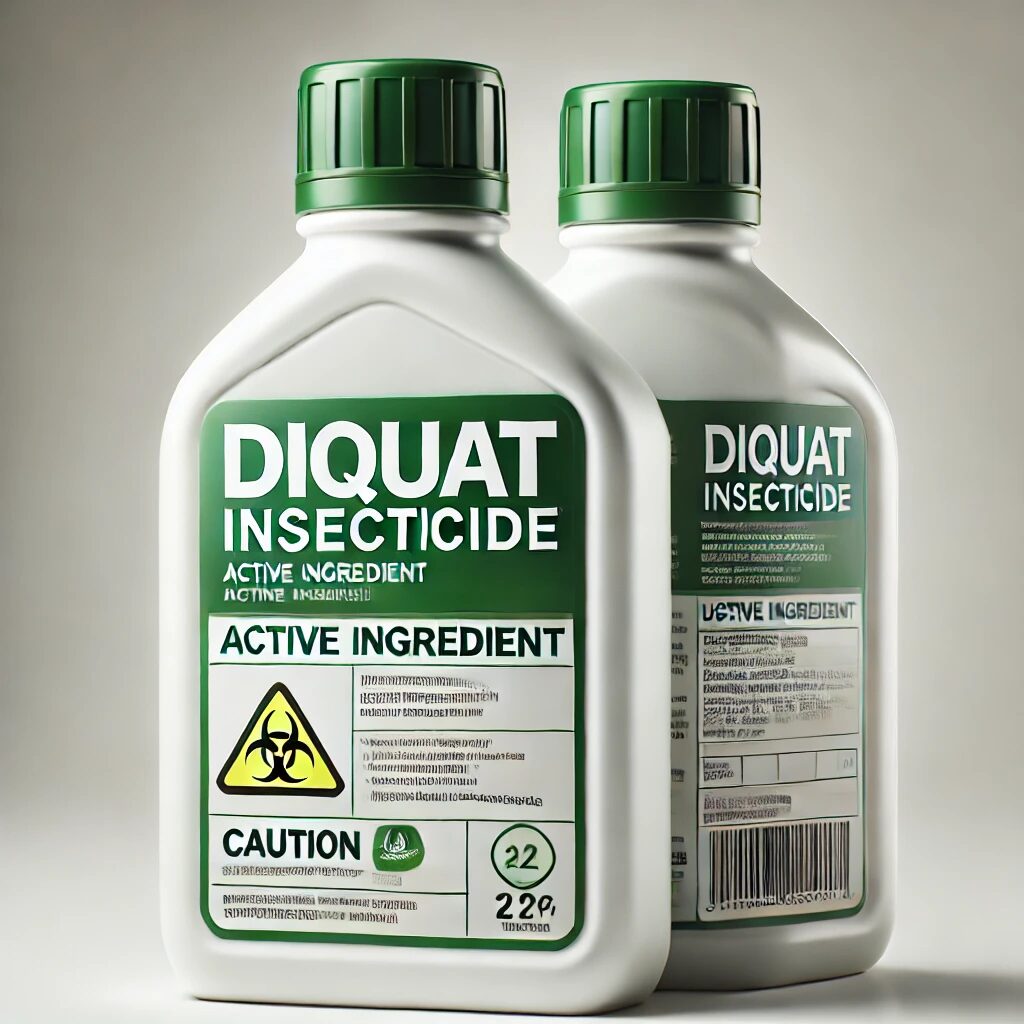
What is Diquat?: Diquat is a contact herbicide known for its fast action. It works by attacking the plant tissue on contact, leading to rapid results. Within hours, you’ll notice visible effects as the weeds begin to wilt and die. This makes Diquat dibromide a popular choice for those looking to see immediate changes.
How Diquat Works on Weeds: Diquat doesn’t absorb into the plant’s root system. Instead, it kills the parts it touches. This means it’s great for areas where you want fast results without worrying about affecting deeper plant tissues.
Pros of Using Diquat: One of the biggest advantages of using Diquat is its speed. If you need quick control over unwanted grass or weeds, Diquat is the way to go. It also has a lower risk of harming surrounding plants since it only kills what it directly touches.
Glyphosate
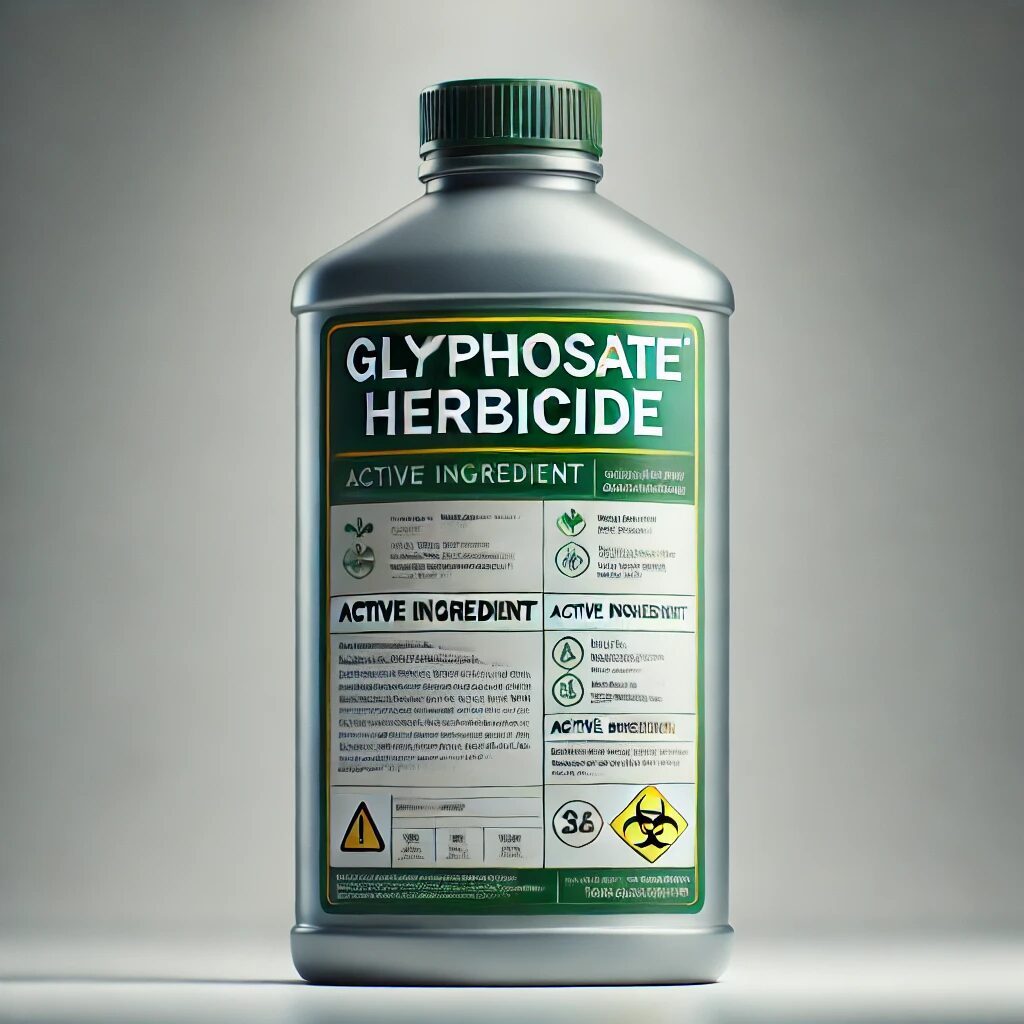
What is Glyphosate?: Unlike Diquat, Glyphosate is a systemic herbicide. It absorbs into the plant and travels to the roots, killing the entire plant over time. This process might take longer, but it ensures that the weed won’t grow back from the root.
How Glyphosate Kills Weeds: Glyphosate is often used in products like Roundup and is ideal for tackling tough weeds with deep roots. It’s also effective against a wide range of plant types, from lawn weeds to garden invaders.
Pros of Using Glyphosate: Glyphosate is powerful against perennial weeds and is ideal for complete plant control. If you have a problem with persistent or dormant weeds that keep coming back, Glyphosate is likely the better option. Plus, it works well in both warm and cool seasons, making it versatile for year-round use.
Diquat vs. Glyphosate: Which Weed Killer Controls Unwanted Grass Fast?
When it comes to weed control, the battle of Diquat vs Glyphosate often arises among homeowners and gardeners. Both herbicides claim to deliver quick results, but their methods, strengths, and ideal use cases differ significantly. Understanding their unique properties can help you decide which one works best for your lawn or garden.
Weeds can quickly overtake a well-maintained landscape, making effective weed control a priority. Let’s dive deeper into the key differences between Diquat and Glyphosate to guide your decision.
Diquat vs. Glyphosate: Application and Results
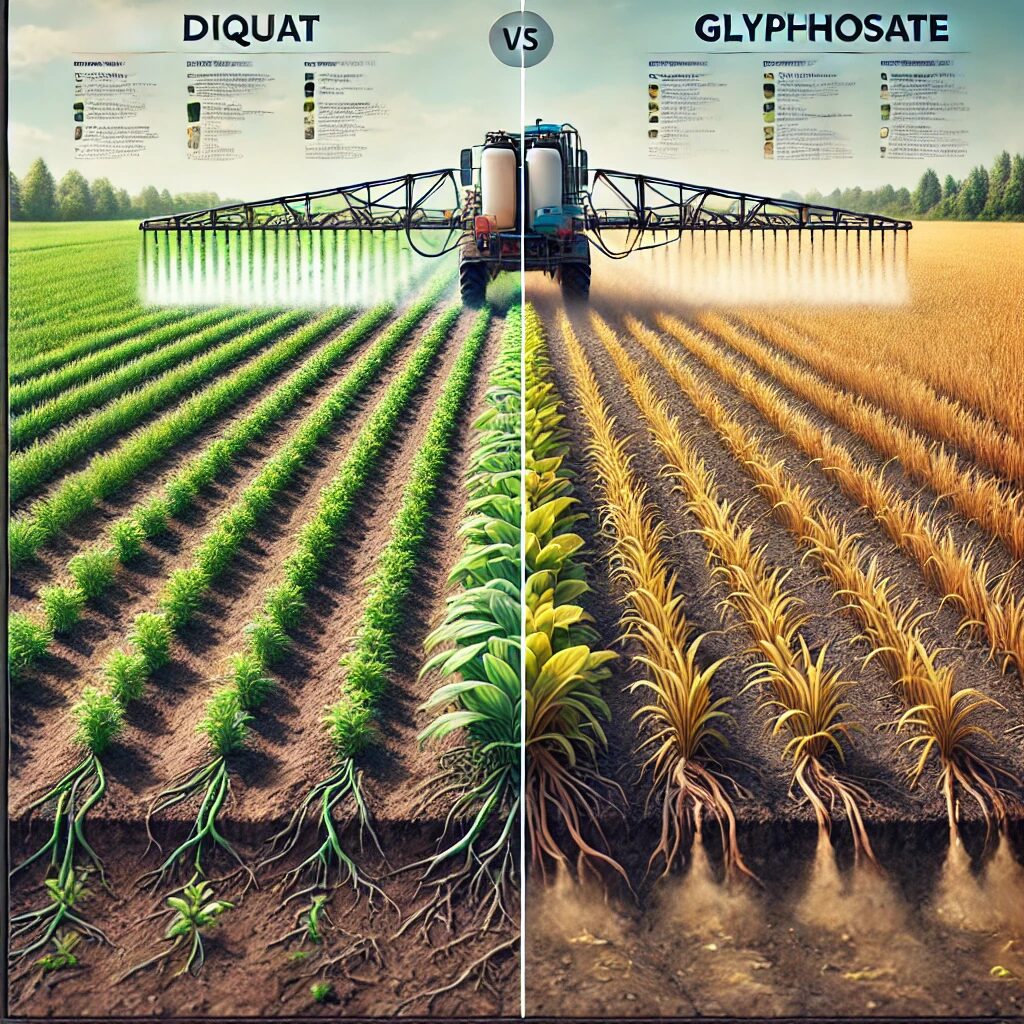
Comparing Application Methods: When applying Diquat vs Glyphosate, you’ll notice differences right away. Diquat is applied as a spray, directly onto the leaves and stems, whereas Glyphosate requires a bit more care, as it needs to be absorbed into the plant for the best effect. Follow the label instructions carefully for both.
Expected Results: Speed and Control Diquat acts fast, so it’s great for spot treatments or areas where you need immediate results. On the other hand, Glyphosate might take up to a week to show full effects, but it offers more thorough weed control by killing from the root up.
When to Choose Diquat or Glyphosate: For a quick fix or a landscape touch-up, Diquat is your best bet. But if you’re dealing with stubborn weeds that need more than surface-level treatment, Glyphosate’s systemic action might be the way to go.
Diquat vs. Glyphosate: Effectiveness on Different Plants
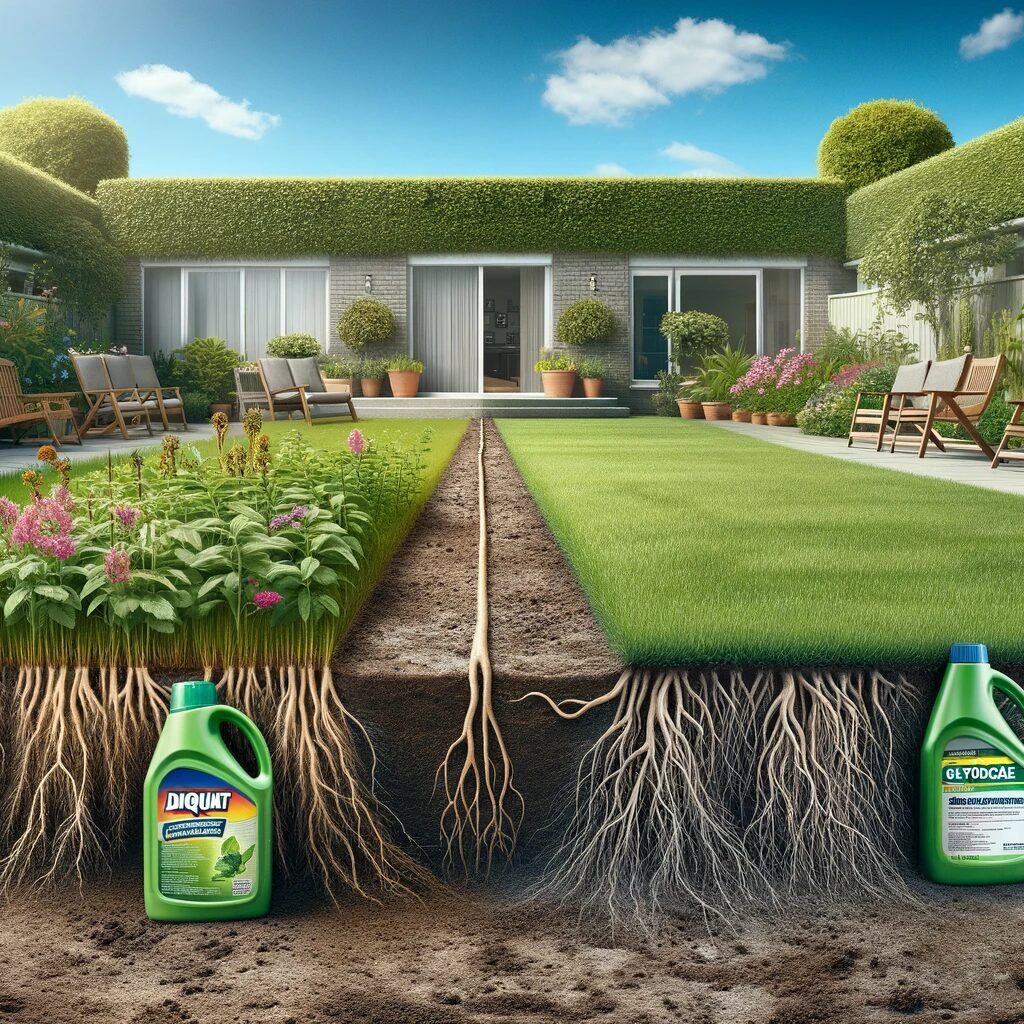
Which Works Best on Grass, Weeds, and Unwanted Plants? For lawns, Diquat is less likely to harm surrounding grass, as it only kills what it contacts. Glyphosate, however, is more indiscriminate, so it’s better for larger areas where you need full weed elimination.
Diquat vs Glyphosate for Lawn vs. Roundup in Tougher Areas: While Roundup is a Glyphosate-based product, some gardeners find that mixing Glyphosate plus additional herbicides offers a broader range of control. In general, Diquat excels in visual appeal by giving faster results.
Pros and Cons for Different Environments: For a garden setting, choose Diquat if you want minimal risk to other plants. For kill-on-contact effectiveness, go with Glyphosate but remember it might require treatment and reapplication to completely get rid of all weeds.
Diquat vs. Glyphosate: Safety and Environmental Impact

Potential Risks and Safety Concerns: Both herbicides carry some level of risk. Diquat can cause irritation, so always wear protective gear when applying it. Glyphosate has been a subject of environmental debates due to its potential impacts on soil and water. Consider alternative options like Spectracide if you’re concerned about the environmental impact.
Safe Application Tips: Ensure you follow all label instructions when applying either product. Use these herbicides in a controlled area, avoid applying them on windy days, and always keep them away from pets and tissue-sensitive plants.
Environmental Alternatives: If you’re looking for greener alternatives, explore organic options that can be gentler on your garden and the surrounding ecosystem. For those in search of a middle ground, diluted applications of low-concentration products can sometimes do the trick without the harsher effects.
Conclusion
The choice between Diquat and Glyphosate ultimately hinges on your specific weed control needs and goals. Diquat is ideal for fast, surface-level control, offering immediate results for spot treatments and protecting surrounding plants.
Conversely, Glyphosate’s systemic action is effective for deeply rooted, persistent weeds, ensuring thorough elimination that minimizes regrowth.
You can make an informed choice tailored to your lawn care needs, by understanding the unique properties, applications, and potential risks of Diquat vs Glyphosate. Whether you prioritize speed, thoroughness, or environmental impact, the right herbicide will help you maintain a clean, healthy outdoor space.
While both herbicides have their pros and cons—including environmental considerations—you can learn more about the EPA on Pesticide Environmental Impact
